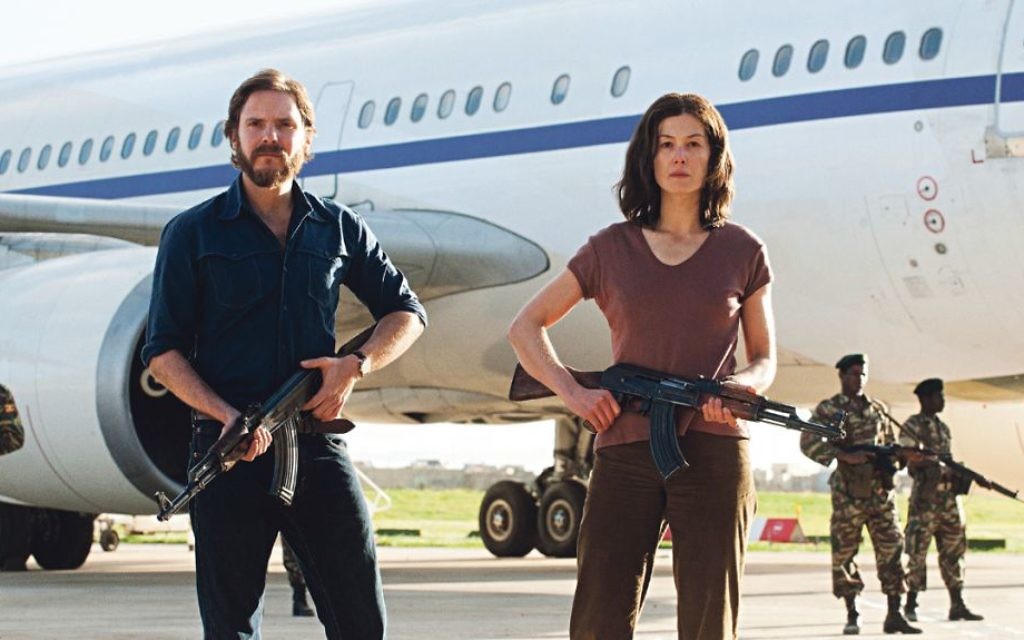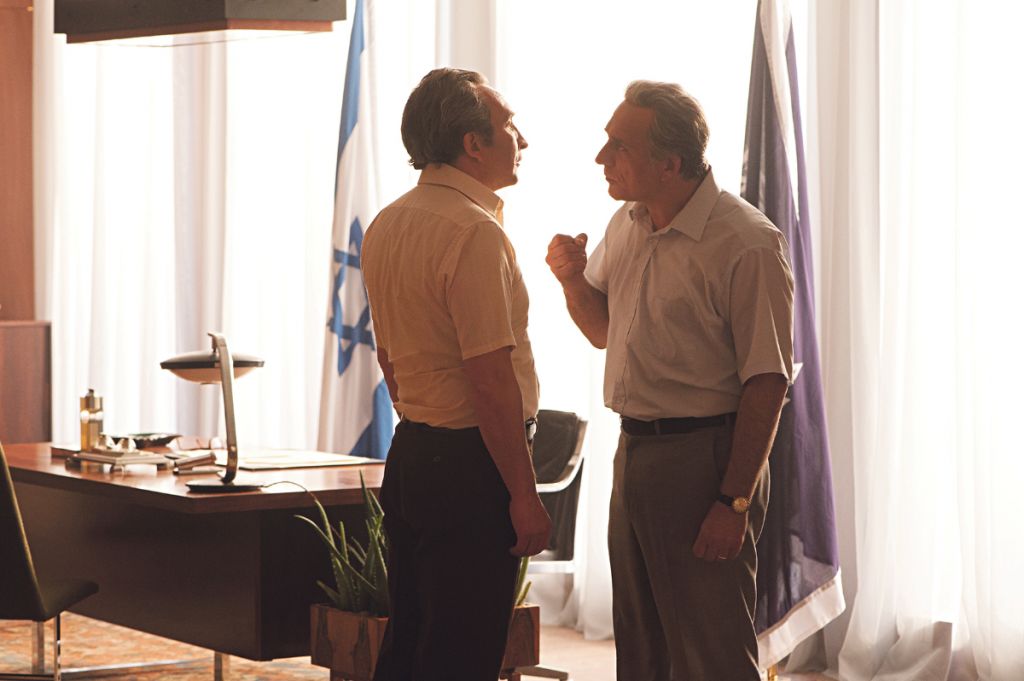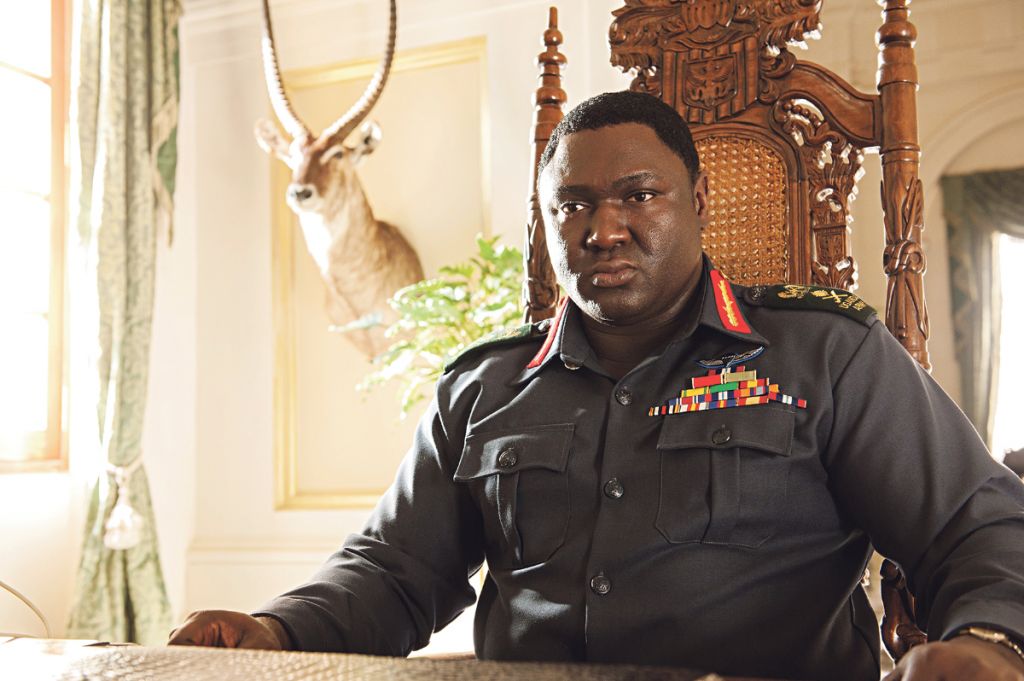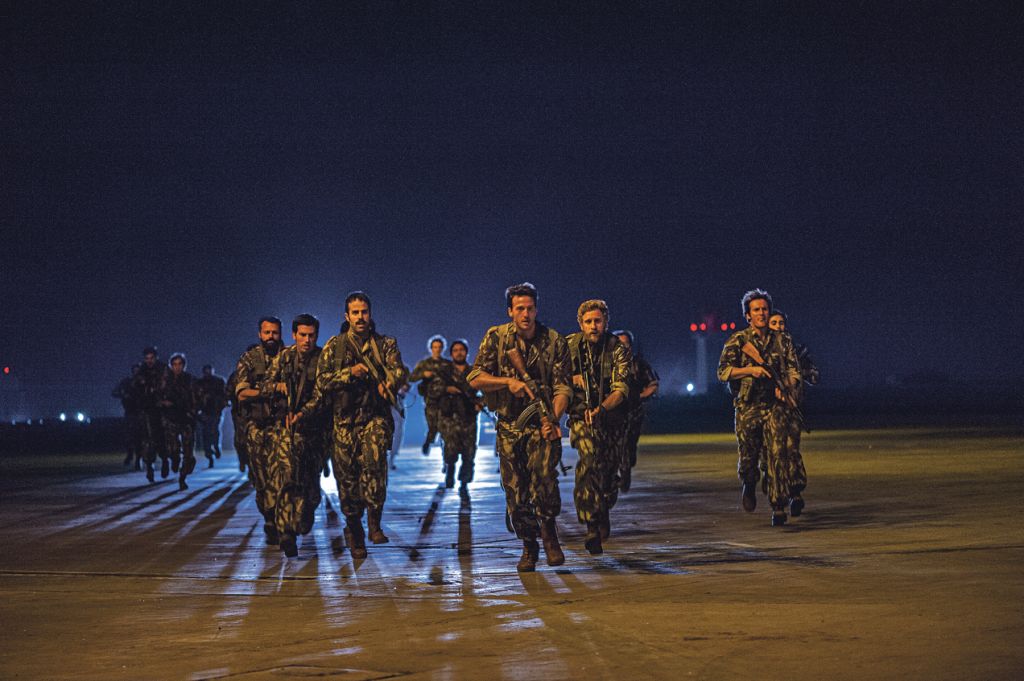The other side of Entebbe
Ben Sales speaks to Daniel Brühl about his role as a German terrorist in the new film version of Entebbe

Getting into the mindset of a left-wing German terrorist hijacking a plane full of Jews was never going to be an easy task – and all the more so for actor Daniel Brühl, who had to delve into a dark moment in history from his own heritage.
The film, directed by José Padilha, tells of the daring mission by Israeli commandos in 1976 to rescue nearly 100 mainly Jewish and Israeli hostages, and focuses on the conflicted experiences of the two Germans – played by Brühl and Rosamund Pike – who allied with Palestinian terrorists to divert their Paris-bound plane to Uganda.
Even as they hold Jews at gunpoint, the two insist they are “humanitarian” activists fighting against fascism. But the parallels to their German forebears are clear.
Get The Jewish News Daily Edition by email and never miss our top stories Free Sign Up
“Germans killing Jews,” an associate of his says. “Ever thought about that?” At another point, Brühl’s character, Wilfried Bose, insists: “I’m no Nazi.”
Brühl, 39, who was born in Spain and grew up in Germany, had his breakout role in the 2003 film Goodbye, Lenin! about East Germany at the end of the Cold War, and met American audiences six years later playing a Nazi war hero in Quentin Tarantino’s Inglourious Basterds.
Although he has played the Gilded Age criminal psychologist Laszlo Kreizler in the TNT series The Alienist and an investigative journalist who recovers Second World War-era art in Woman In Gold, in five different films he has been called on to play Nazis, a civil servant under the Nazis, or a supervillain from a Nazi family.
The multiplicity of such roles, Brühl said, is a natural consequence of being a German actor in an industry that keeps churning out films about this era.
But it also has to do with his interest in historical events. In addition to films about the Second World War, the Entebbe raid and the fall of the Berlin Wall, Brühl – whose mother is Spanish – was in The Carpenter’s Pencil, about the Spanish Civil War, as well as dramas set in Franco’s Spain and 1970s Chile.

In Entebbe, Brühl plays a German bad guy grappling with his country’s recent history, but he makes it clear that he doesn’t want such roles to define him.
“I’ve done so many different things,” he said. “Looking back, there’s a body of work, which is very diverse. Fortunately, I can say I’ve done many different things.
I wouldn’t have liked to be typecast and limited to that. When I decided to take these parts, it was always out of an interest in period projects, in history.
“It’s important to read about history, to analyse history, to also understand where we are right now.
“Being a German-Spanish actor, of course I’m participating in projects that deal with the history of my countries. I want to understand where I come from. This is what drives me.”
Listen to the Jewish Views Podcast:
Brühl does historical research to prepare for those roles. For Inglourious Basterds, a revenge fantasy that cared little for historical accuracy (the movie has a Jew machine-gunning Hitler in the face in 1944), Brühl took courses with a sniper.
For The Zookeeper’s Wife, a Holocaust drama based on a true story, he and co-star Jessica Chastain met with the titular zookeeper’s daughter.
And for Entebbe, Brühl read up on the German far-left activists of the 1960s and 1970s, including Revolutionary Cells, the urban terrorist group that conducted the Entebbe hijacking. He also met with survivors of the raid.
Brühl was born two years after the Entebbe hijacking and recalls hearing his parents talking about the leftist groups in later years.

“I just wanted to go back in time, dig a little bit further and get into the mindset of a person who was taking the decision to not only be politically active, but to go that extra step and be a radical and join a mission in which a left-wing German terrorist is hijacking a plane with Jewish passengers,” he said. “It’s still so unbelievable. That made me curious to do some more research.”
Entebbe departs from previous films about the incident, which include Operation Thunderbolt (1977), a heroic saga retelling the story of Yoni Netanyahu, the brother of the current Israeli prime minister, who was killed in the raid.
Entebbe, however, alternates between the hijackers and the political drama revolving around Yitzhak Rabin and Shimon Peres, who at the time were prime minister and defense minister, respectively.
Much of the dialogue between Peres (played by Eddie Marsan) and Rabin (Lior Ashkenazi) is a heavy-handed discourse – performed in heavily-accented English – on the need to negotiate for peace.

The end credits trace the two men’s lives after 1976 and note that the peace process is now inactive – as if to draw a comparison between a hostage negotiation with a terror group and final-status talks between two recognised governments.
Meanwhile, the film deals with the story of the Israeli rescuers by focusing on an ambivalent soldier and his girlfriend, a dancer whose performances are, for some reason, interspersed with scenes of the raid. (The choreography is by famed Israeli choreographer Ohad Naharin.)
Yoni Netanyahu is portrayed with a bit role in this version and is unceremoniously killed as the operation is beginning.
The movie is most engaging as it explores the dilemmas of the Brühl and Pike characters, as a conflicted man and zealous woman on a violent ideological mission. The film humanises them, telling their backstories, showing how they were trained and, ultimately, how they break down during the escalating hostage crisis.
But it’s unambiguous in judging them: they are villains in this story.
For Brühl, that’s not a problem. As with much of his work, it’s another way to delve into history, however messy it may be. “That ongoing conflict is important, especially for younger generations, to take a step back, and look at the situation back then,” he says.
“It can help you understand the current situation a little bit better, to remind yourself of the positions of what historically and politically was behind such a mission, and not just show an easy black-and-white picture of the conflict.” (JTA)
- Entebbe (12A) is out in cinemas tomorrow (Friday)

Thank you for helping to make Jewish News the leading source of news and opinion for the UK Jewish community. Today we're asking for your invaluable help to continue putting our community first in everything we do.
For as little as £5 a month you can help sustain the vital work we do in celebrating and standing up for Jewish life in Britain.
Jewish News holds our community together and keeps us connected. Like a synagogue, it’s where people turn to feel part of something bigger. It also proudly shows the rest of Britain the vibrancy and rich culture of modern Jewish life.
You can make a quick and easy one-off or monthly contribution of £5, £10, £20 or any other sum you’re comfortable with.
100% of your donation will help us continue celebrating our community, in all its dynamic diversity...
Engaging
Being a community platform means so much more than producing a newspaper and website. One of our proudest roles is media partnering with our invaluable charities to amplify the outstanding work they do to help us all.
Celebrating
There’s no shortage of oys in the world but Jewish News takes every opportunity to celebrate the joys too, through projects like Night of Heroes, 40 Under 40 and other compelling countdowns that make the community kvell with pride.
Pioneering
In the first collaboration between media outlets from different faiths, Jewish News worked with British Muslim TV and Church Times to produce a list of young activists leading the way on interfaith understanding.
Campaigning
Royal Mail issued a stamp honouring Holocaust hero Sir Nicholas Winton after a Jewish News campaign attracted more than 100,000 backers. Jewish Newsalso produces special editions of the paper highlighting pressing issues including mental health and Holocaust remembrance.
Easy access
In an age when news is readily accessible, Jewish News provides high-quality content free online and offline, removing any financial barriers to connecting people.
Voice of our community to wider society
The Jewish News team regularly appears on TV, radio and on the pages of the national press to comment on stories about the Jewish community. Easy access to the paper on the streets of London also means Jewish News provides an invaluable window into the community for the country at large.
We hope you agree all this is worth preserving.
-
By Brigit Grant
-
By Laurent Vaughan - Senior Associate (Bishop & Sewell Solicitors)
-
By Laurent Vaughan - Senior Associate (Bishop & Sewell Solicitors)
-
By Laurent Vaughan - Senior Associate (Bishop & Sewell Solicitors)
-
By Laurent Vaughan - Senior Associate (Bishop & Sewell Solicitors)





















